Let's talk about weight
Carrying extra weight on your body is a problem--a BIG problem for half of people in the UK and two-thirds of Americans. Only a tenth of obese people can accurately identify their degree of weight problem, and doctors regularly underestimate weight problems in overweight patients due to the mass problem in society. On the reverse end, Instagram and Pinterest's explosion fitness trends and memes has lead to an epidemic of eating disorders and conditions of being underweight; a third of fitness models weigh less than their target healthy weight. Most people misunderstand health and view it in an unhealthy way, resulting in an epidemic of obesity and obsession with unhealthy fitness fads
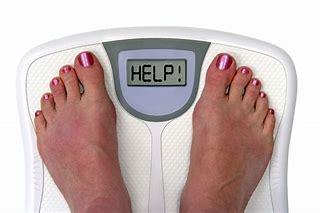
The weight problems of the developed world stem deeper than processed foods and internet addiction--society at large has an unhealthy view of heath, fitness, and self-esteem. Contrasting debates of fat shaming vs acceptance only further fuel the problem by forcing people to choose a side between shamefully deciding to join the healthy or further rooting into the mental illness denial of weight problems in the first place. Therefore fat acceptance is just as bad as fat shaming because neither one manages the root issue nor encourages a healthy adoption of weight loss
What is healthy?
The best place to address your health is a scale, a ruler, and a BMI (body-mass index) chart. While every everyone fits differently into the BMI chart dependent on body type and muscle density, this is still the best place to start. Generally someone who scores lower or higher than 19-25 (up to 30 for women, especially if they're pregnant) is considered to be unhealthy, either under or overweight. If your BMI exceeds 30, you are generally considered to be obese, and YOU should not be accepting of that. My BMI usually ranges between 23-25, with the lowest (and honestly I felt sickly and restricted my diet too much) at 21
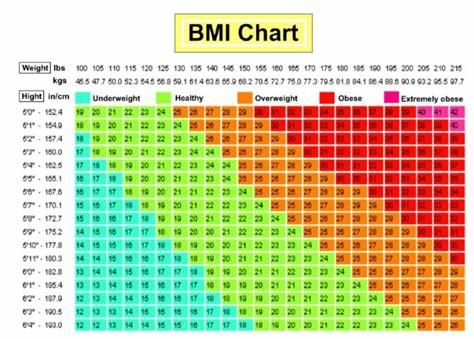
Once you understand where you're starting from, then you can further look into what your body type means for your health, what food and workout regimens work best for you, and what a healthy weight looks like on you. Determining whether you fit into an ectomorph, endomorph, or mesomorph body type will greatly affect your BMI as endomorphs tend to be healthier with higher BMIs and ectomorphs on the lower end. Also taking into account and TREATING any preexisting conditions such as diabetes, high blood pressure, and thyroid problems is important for your specific health
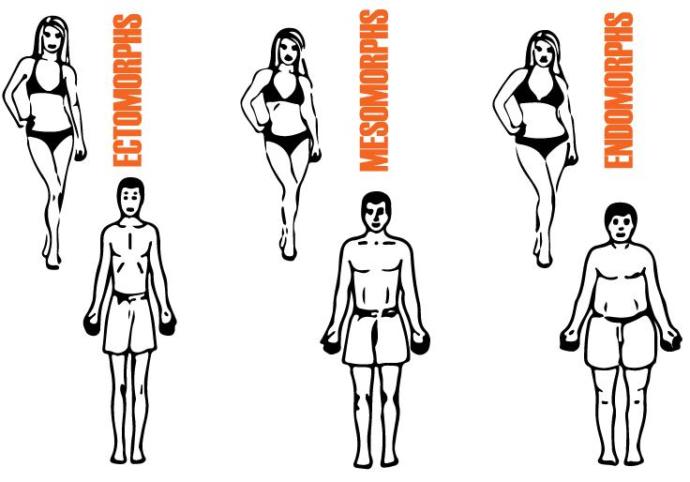
Not all fat is equal
That's right--your belly fat is much worse for your health than my butt/thigh fat. Studies prove that belly or gut fat is the prime culprit of health problems in obese patients. A woman with a BMI of 30, but an hourglass waist under the goal of 30" (76 cm) and who stores fat in her but/hips/thighs is not considered to be obese while a woman with a BMI of 25 with an apple body type who stores the majority of her fat in her stomach is putting herself at risk of heart disease, diabetes, et cetra...So no, it is not fair that your genes predetermine your health risk factors in where your body stores fat, but it is your responsibility and duty to yourself to understand what is healthy for yourself
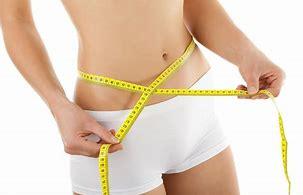
Why fat acceptance is just as bad as fat shaming
Anorexia nervosa, bulimia nervosa, and orthorexia nervosa are eating disorders that center around body dismorphic disorder; people who are unhappy with their bodies develop eating disorders where they starve themselves, deprive themselves, or binge on and throw up food in an effort to control their body weight and hunger. Obesity often develops from mental illness such as depression and bipolar disorder and ignorance or denial of physical illnesses such as diabetes, heart disease, and thyroid disorders. Either way you look at it, weight problems are psychological, so society needs to address its mental illness associated with weight before we can positively encourage ourselves to live healthy lives and accept solutions, not problems
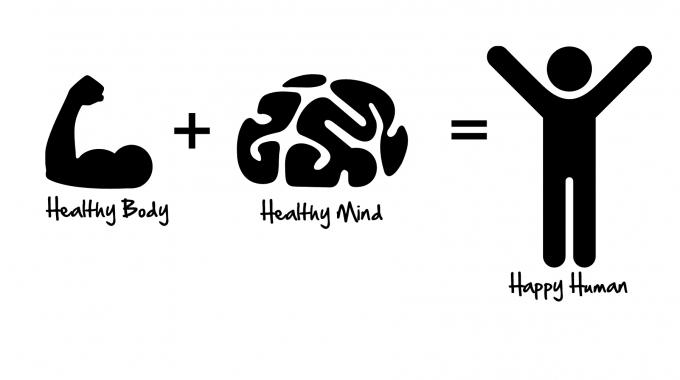
Physical health and mental health walk hand-in-hand, so you cannot achieve one without the other. In order to heal society's weight problem, it also needs to heal the unhealthy way it views weight
Why fat shaming is bad
Obviously fat shaming is bad, but shame for being overweight is not. You've probably heard the comparison to heckling smokers and drug addicts, but there is truth in that. Shame is a normal human emotion essential in motivating catastrophic decisions such as immense weight loss. But just as the denial of eating a dozen boxes of Oreo's negatively impacts your health, so can heckling, bullying, and external shaming, especially if something like comfort-eating to help with depression lead to your weight gain in the first place
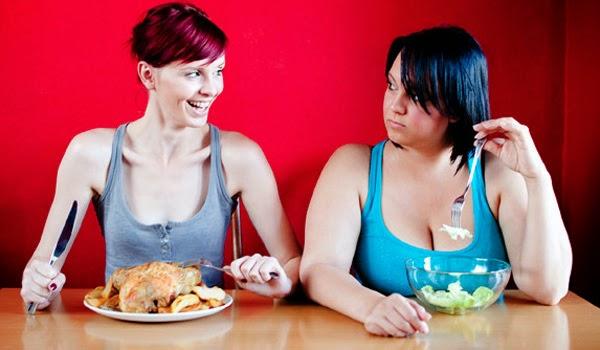
Fat shaming is bad because it is negative. Negative things are not motivating or encouraging and they further increase negative feelings such as shame and doubt if you fail (such as when you hit a plateau or start gaining weight back). When you actively shame people for their weight, they only further feel worse about it, often negatively reinforcing poor behavior such as comfort-eating. If someone were to lose weight due to fat shaming, you would only increase their anxiety and doubt once they finally hit their goal. Fat shaming has lead to a new disorder called orthorexia where people become obsessed with food, particularly healthy food, that leads to anxiety and depression when they "cheat" or eat anything considered unhealthy. So say you were to encourage 50% of society to lose weight through shame, you would only cause more problems when they lost all that weight, because they would not be secure in their weight or weight loss

"You're so fat, you're hideous and nobody wants you" is fat shaming and bad for people. This negativity causes someone with a weight problem to feel inferior and depressed. If someone you're concerned about is overweight, try something more personal and realistic such as "Your diet is bad for your health and I think you're setting a bad example for your children" or "I'm concerned that ignoring your pre-diabetes by eating Twinkies is only going to be worse for your weight problems." It is clear that 90% of obese people don't accurately identify themselves as obese, so society as a whole needs to be more realistic and serious about these issues, but nobody needs to point fingers or blame anybody but themselves
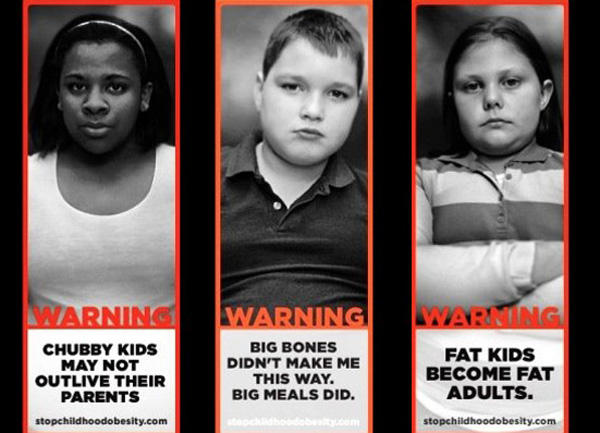
If you're one of those people who fat shames yourself into working out or starving yourself, that's not healthy either. Poor self-esteem is a huge factor when it comes to weight issues. Always consider therapy to help better understand yourself and treat yourself fairly
Why fat acceptance is bad
If I bought you drugs, I would be an enabler; If I bought you alcohol, I would be an enabler; If I accepted your obesity, I would be an enabler
Body positivity is a good thing and good self-esteem is healthy, but a positive view of something negative is unhealthy. Fat acceptance is a PC form of denial, and denial is a poor way of dealing with negative emotions. You should not accept that you are obese; I should not accept that you are obese; society should not accept obesity. When you accept something bad like bad health, you are doing yourself a disjustice and only worsening your problem. Denying your weight problem or doing nothing about it is just as bad for your health as feeling so poorly you have no motivation. Both are equally bad because they're both unhealthy ways of viewing weight, and neither one encourages you to lose weight in a positive, healthy way
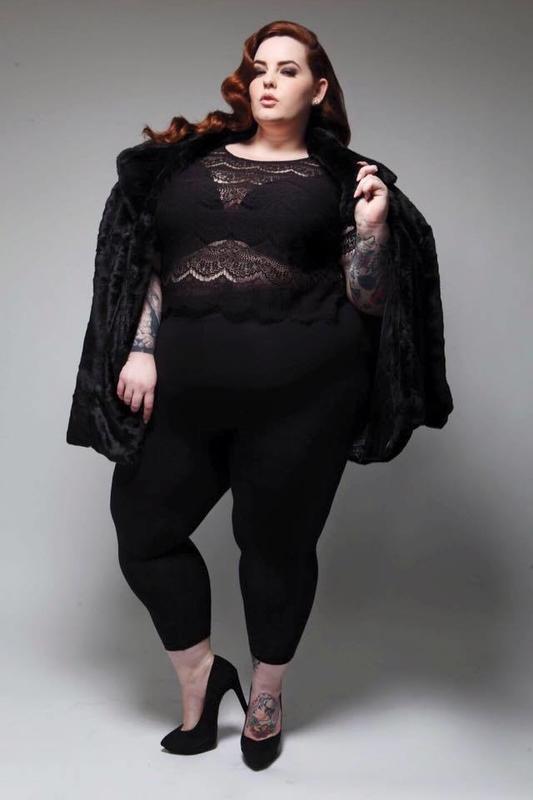
Tess Holliday is a horrible role model--note I did not say she is ugly or disgusting--because she encourages poor health both mentally and physically. As the world's larges plus-size model, she is as caustic for the developed world as a billboard with an underweight model like Twiggy plastered across it. There is no secret that Hollywood and the fashion industry as a whole have presented an unhealthy view of beauty to the world, so that secret should not stop at the plus-size industry. Beauty is subjective, but health is not; you can choose whether or not to view Tess Holliday as beautiful, but you owe it to yourself not to accept her as healthy
Focus more on the body positivity movement, but only the mentally healthy aspects of it. Accept things like your body type and your cellulite (100% of people have cellulite fat cells) because you are never going to change them, but realistically accept that you need to change things like your obesity or drug problem because they negatively affect your health. Stretch marks, scars, birth marks, bad teeth, skin tags, and birth defects such as cleft palettes belong in a third category of something that is mentally healthy to both keep or change; if something causes you emotional distress and would vastly impact your self-esteem by easily changing it, then go ahead. Accept what you can't change and change what you can't accept

Why fitness extremes are bad
Unsurprisingly, fitness extremes contribute to society's healthy problem just as much as the fashion industry and your judgmental relatives who gift you cook books and scales for birthdays and holidays. Viewing people online who are much more successful at something than you can be demotivating if you are so far away from that goal you feel like running down an endless hallway; comparing yourself to someone with a different body type or who is killing themselves to look so perfect (when they only look perfect while flexing in that particular pose) is unrealistic. Yoga is healthy, but unless you're naturally born with the bone structure and ligaments to get into a full back bend or work for 2 years to perform a full handstand, starting a workout regimen based on a glamorous picture you saw online isn't going to pay off. HIIT (high-intensity interval training) causes the largest percentage of workout-related injuries because people try it as a fad without knowing their limitations

Same as viewing yourself and your weight in a healthy way, aim to view internet content, pictures, stories, and challenges in a healthy way as well. Find a workout regimen that works well for you that you can stick with. For example: I do yoga because I like low-impact exercise that helps with my joint problems, but my best friend likes kick-boxing because she needs something intense and aggressive to help her lose weight, and neither one of us would be happy with or able to stick with the other's workout
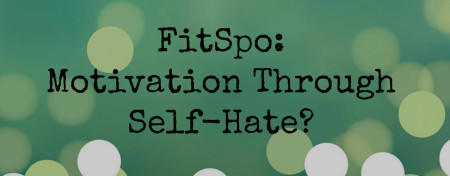
Fitness models aren't always healthy, so comparing yourself to one is not healthy. Most fitness models regimen their diets to a point where they have so little fat they are unhealthy, feel physically sick, and gain weight easily by returning to a normal diet. Working out for more than an hour reduces and can reverse health benefits gained from working out. Juice cleanses and fat diets cause more harm than good for most people, so understanding all the health benefits and consequences of fad diets is important before undertaking one
What you can do to help
Remember that fat acceptance is just as bad as fat shaming because both are negative, reinforce unhealthy thought-processes and actions, and prevent people from moving forward in a positive, healthy direction

If you are someone who struggles with weight, accept your problems and formulate a healthy way of fixing them. Study your body type and what makes you feel good, and identify your target weight. Find someone with your body type to compare yourself to and aim to look like. Research, try, and identify what workouts will work best for you. And when it comes to food, remember that the key is moderation; learn to cook, eat what you know is good for you, and treat yourself every once-in-a-while. If you use a lot of excuses like "I don't have time for that" or "Healthy food costs too much," then research what options you have to work around your excuses, and hold yourself accountable

If you are someone who influences others (whether online, in a book, or among friends), then focus on positive, moderate encouragement. Never be ashamed of your awesome body, but understand that not everybody has the bone structure to look like you, nor would they necessarily feel healthy at your body weight. When offering advice, think twice about whether that advice is healthy, positive, and going to encourage someone in a better direction. Try to avoid roping people into conversations they feel uncomfortable with, sounding like a crazy health nut, or making someone feel like a failure for not living up to your expectations
And if you are a bully or troll who thinks it's funny to mock or ridicule people for their weight, then get yourself to a therapist who can help you get a job and move out of your grandmother's basement
Most Helpful Opinions